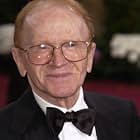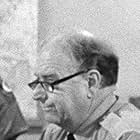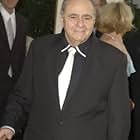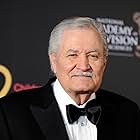Mild-mannered accountant Harry Phyfe is recruited by a US counterintelligence agency to impersonate a dead foreign agent who was his opposite in all respects except appearance.Mild-mannered accountant Harry Phyfe is recruited by a US counterintelligence agency to impersonate a dead foreign agent who was his opposite in all respects except appearance.Mild-mannered accountant Harry Phyfe is recruited by a US counterintelligence agency to impersonate a dead foreign agent who was his opposite in all respects except appearance.
Photos
Storyline
Did you know
- TriviaThe main section of Vic Mizzy's theme tune (the part with lyrics, not the instrumental bridge) was recycled from an instrumental piece he already used in several episodes of Green Acres (1965)'s first season.
Featured review
I was twelve years old, and I recall watching this show on television when I visited my grandparents. It was a cleverly written piece of fluff about how the U.S. government's spy agency (headed by Fred Clark) has been following a notorious spy and is about to spring a trap on him.
What happens to the spy was shown in the first episode, but in later episodes it became the opening lines of the show's theme song, partly sung by Clark (who rarely sang - actually he talk sang, like Rex Harrison in MY FAIR LADY):
"This is about a great spy named U - 31. On his first day here, he was killed by a hit-and-run.
Clark: "Got to find a spy who looks just like U - 31 but who?"
Pause - Clark again, facing Buttons: "Henry Phyfe!"
Clark explains to his staff, that U - 31 is one of the most effective spies in the world, and he should be followed and confronted by what they have - and forced to become a double agent. Instead, a European, he is seen rushing across a street pursued by Clark's men, and looked the wrong way (instead of left to right traffic when crossing our streets, right to left, like in England). So he's hit by a car and killed.
Clark is upset because he needed U - 31 as an effective double agent. Soon he finds a new replacement, a downtrodden clerk called Henry Phyfe (also played by Buttons). But the plot of this show was that Buttons is reluctant (at best) to assist the government in it's spying activities. He is constantly trying to get out of helping, and Clark is constantly manipulating Phyfe into doing he wants.
Formula comedy perhaps, but Clark and Buttons had good chemistry, and the stories were actually funny. In one episode, Phyfe's susceptibility to hypnosis is used by Clark, the enemy (presumably the Russians), a young woman he is dating, and his usual girlfriend, to the point that at the conclusion nobody is sure which of the hypnotized states in Phyfe's mind is working (he ends the tension by handing the gun he is holding at the four people involved to Clark, begging him to take it because he's going crazy). In another one, Phyfe is set up by the enemy to assassinate an important figure (it turns out to be Clark), and manages to bungle the attack - but Clark realizes that it helps cement Phyfe's role as duplicitous U - 31 to make it look like the attack was a success. So he is photographed "badly wounded" in his office, so that the enemy believes U-31 was doing what he was told.
It was a good show. All my memories of it are quite warm. But it only lasted one season. I've often wondered if it was low ratings or what. Fred Clark died two years later (1968), so one wonders if the producers realized that he was not going to last long enough to work so well with Buttons. Or did Buttons start doing to this show what he had done on his more famous 1950s variety show, throwing his weight around with the writing staff, and driving his producers to distraction. Or did people feel that it just was not in the same class as the contemporary spy spoof GET SMART? It should have lasted three or four years, under normal circumstances. It's failure remains a deep puzzle for me.
What happens to the spy was shown in the first episode, but in later episodes it became the opening lines of the show's theme song, partly sung by Clark (who rarely sang - actually he talk sang, like Rex Harrison in MY FAIR LADY):
"This is about a great spy named U - 31. On his first day here, he was killed by a hit-and-run.
Clark: "Got to find a spy who looks just like U - 31 but who?"
Pause - Clark again, facing Buttons: "Henry Phyfe!"
Clark explains to his staff, that U - 31 is one of the most effective spies in the world, and he should be followed and confronted by what they have - and forced to become a double agent. Instead, a European, he is seen rushing across a street pursued by Clark's men, and looked the wrong way (instead of left to right traffic when crossing our streets, right to left, like in England). So he's hit by a car and killed.
Clark is upset because he needed U - 31 as an effective double agent. Soon he finds a new replacement, a downtrodden clerk called Henry Phyfe (also played by Buttons). But the plot of this show was that Buttons is reluctant (at best) to assist the government in it's spying activities. He is constantly trying to get out of helping, and Clark is constantly manipulating Phyfe into doing he wants.
Formula comedy perhaps, but Clark and Buttons had good chemistry, and the stories were actually funny. In one episode, Phyfe's susceptibility to hypnosis is used by Clark, the enemy (presumably the Russians), a young woman he is dating, and his usual girlfriend, to the point that at the conclusion nobody is sure which of the hypnotized states in Phyfe's mind is working (he ends the tension by handing the gun he is holding at the four people involved to Clark, begging him to take it because he's going crazy). In another one, Phyfe is set up by the enemy to assassinate an important figure (it turns out to be Clark), and manages to bungle the attack - but Clark realizes that it helps cement Phyfe's role as duplicitous U - 31 to make it look like the attack was a success. So he is photographed "badly wounded" in his office, so that the enemy believes U-31 was doing what he was told.
It was a good show. All my memories of it are quite warm. But it only lasted one season. I've often wondered if it was low ratings or what. Fred Clark died two years later (1968), so one wonders if the producers realized that he was not going to last long enough to work so well with Buttons. Or did Buttons start doing to this show what he had done on his more famous 1950s variety show, throwing his weight around with the writing staff, and driving his producers to distraction. Or did people feel that it just was not in the same class as the contemporary spy spoof GET SMART? It should have lasted three or four years, under normal circumstances. It's failure remains a deep puzzle for me.
- theowinthrop
- Aug 5, 2006
- Permalink
Details
- Release date
- Country of origin
- Language
- Also known as
- Espía a la fuerza
- Production company
- See more company credits at IMDbPro
Contribute to this page
Suggest an edit or add missing content

Top Gap
By what name was The Double Life of Henry Phyfe (1966) officially released in Canada in English?
Answer




















